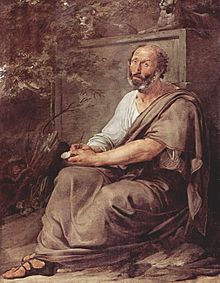Meaning of life in Islam
In Islam, man's ultimate life objective is to worship the creator Allah by abiding by the Divine guidelines
revealed in the Qur'an and the Tradition of the Prophet. Earthly life is merely a test, determining one's afterlife, either in Jannat (paradise) or in Jahannam (Hell).
For Allah's satisfaction, via the Qur'an, all Muslims must believe in God, His revelations, His angels, His messengers, and in the "Day of Judgment".[63] The Qur'an describes the purpose of creation as follows: "Blessed be he in whose hand is the kingdom, he is powerful over all things, who created death and life that he might examine which of you is best in deeds, and he is the almighty, the forgiving" (Qur'an 67:1–2) and "And I (Allâh) created not the jinn and mankind except that they should be obedient (to Allah)." (Qur'an 51:56). Obedience testifies to the oneness of God in His lordship, His names, and His attributes. Terrenal life is a test; how one acts (behaves) determines whether one's soul goes to Jannat (Heaven) or to Jahannam
(Hell).[64][citation needed]








